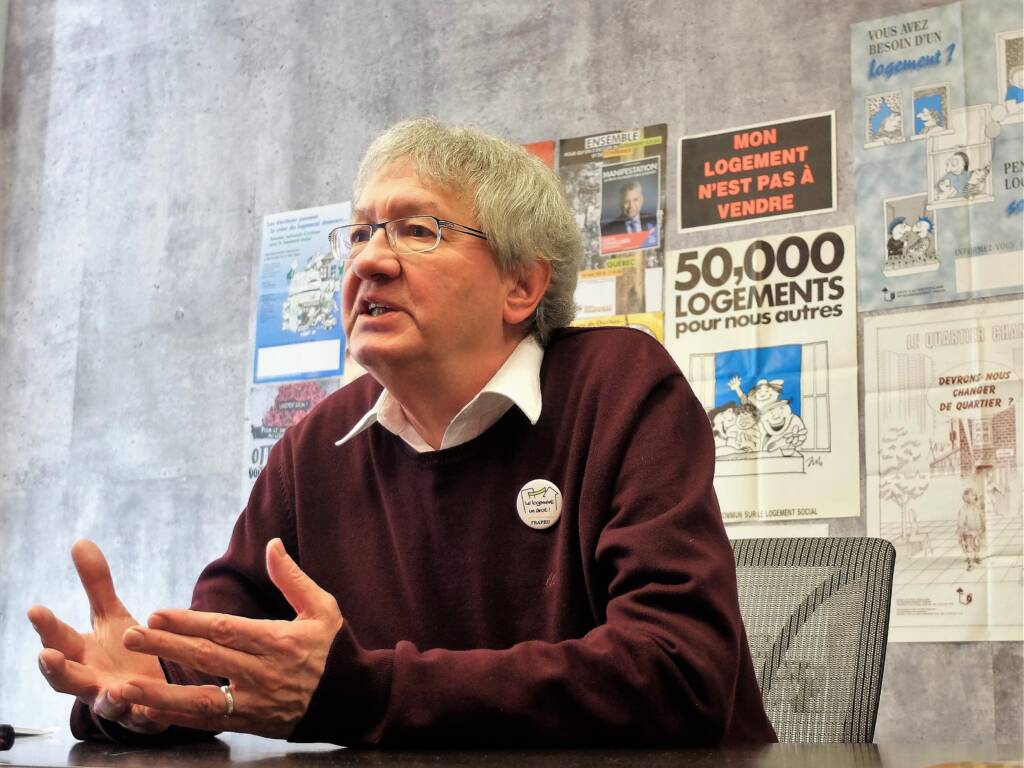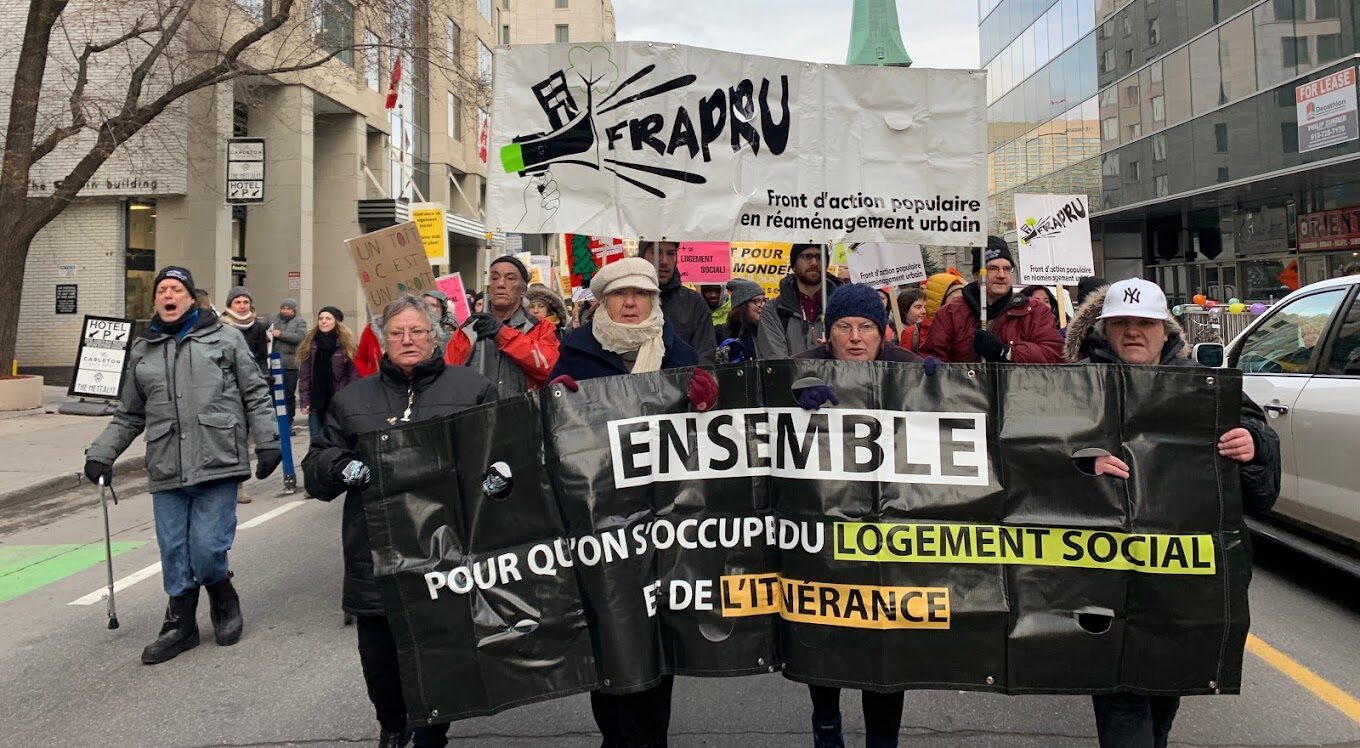Quebec's housing starts have fallen to a record low this year. In the Greater Montreal area, housing starts fell by 58%, the biggest drop in a quarter-century. For Quebec as a whole, the decline was 53%. This exacerbates an already severe housing shortage in the province. By 2022, only 1.7% of housing units in Quebec were unoccupied.
North Star spoke to François Saillant, former spokesman for the Popular Action Front for Urban Redevelopment (FRAPRU) and member of the Rosemont Housing Committee, to understand the reasons behind the drop in housing starts and the impact it will have on the housing crisis in Quebec.
According to him, the private market is inflating the scarcity of housing to put upward pressure on rents. "The average price of rental units in Montreal is up 10% compared to October 2022. It's clear that the market, the crisis as it is, is doing the business of the big investors, the real estate investment funds, and in my opinion, that's why we're not building more housing at the moment, as logic would have it."
Saillant explains that this is a phenomenon we've seen in the past. "Every time there's a crisis, very little housing is built. In the early 2000s, rental housing was in very short supply. At that time, condos were the norm. It was only in the 2010s that rental housing construction picked up again."
He adds a nuance, however. "One of the particularities of the current crisis, compared to the early 2000s, is that no urban center has been spared. A report by the Canada Mortgage and Housing Corporation indicates that all but 1 of Quebec's urban centers are affected by a severe housing shortage. Housing vacancy rates of less than 1% are very common."
Added to this is the financialization of the real estate market. "It's increasingly controlled from one end to the other by real estate funds, from construction to management. Right now, we can't even talk about a conspiracy; it's an open control of the market. It's the market itself that wants the situation as it is, otherwise it would start building again."

This can be observed in other major Canadian cities: "In the case of Vancouver, the average rent is $3339, and in Toronto, it's $2900. In these cities, the job is done. So in those cases, real estate developers can afford to start building again." And so it is, with Toronto and Vancouver recording increases in housing starts of 32% and 49% respectively compared to October 2022.
In addition to the decline in housing starts, the growing number of families who can't afford home ownership is playing into the rising scarcity of rental housing. "For the first time, the 2021 census showed that the percentage of renters was increasing while that of homeowners was decreasing. That was before the current rise in interest rates."
To solve the problem, FRAPRU is calling for the socialization of the rental housing stock. In their view, since housing is a necessity, it is crucial to protect it from monopolistic real estate companies and investors seeking to profit from it. For their part, groups of housing committees and tenants' associations in Quebec are calling on the government to freeze rents, failing which to implement concrete measures to control increases.
Over the past year, groups of tenants in the Greater Toronto Area have launched rent strikes lasting several weeks to protest against abusive rent increases. For example, tenants of three buildings on Thorncliffe Park Drive led a rent strike against Starlight Investments, one of the country's largest landlords.
- CAPREIT extracts as much money as possible from their tenants
- A Law Written for and by Landlords
- The Legault Government Launches an Attack on Tenants
- A Campaign for a Moratorium on Evictions
- When Politics and Business Violate Tenants’ rights
- Real estate developers reinforce shortage by reducing housing starts
- What effects will the adoption of Québec’s Bill 31 have?
- Housing bill continues to be denounced by unions and housing groups
- Conflict of interest for Quebec’s tenant-landlord tribunal?
- One year later, tenants still standing up to excessive rent increases
- Developers paying pennies to bypass affordable housing requirements in Montréal
- Build, but at what cost to tenants?
- A First Victory for Quebec Tenants Against the CAQ
- “Montreal attacks the homeless instead of homelessness”


